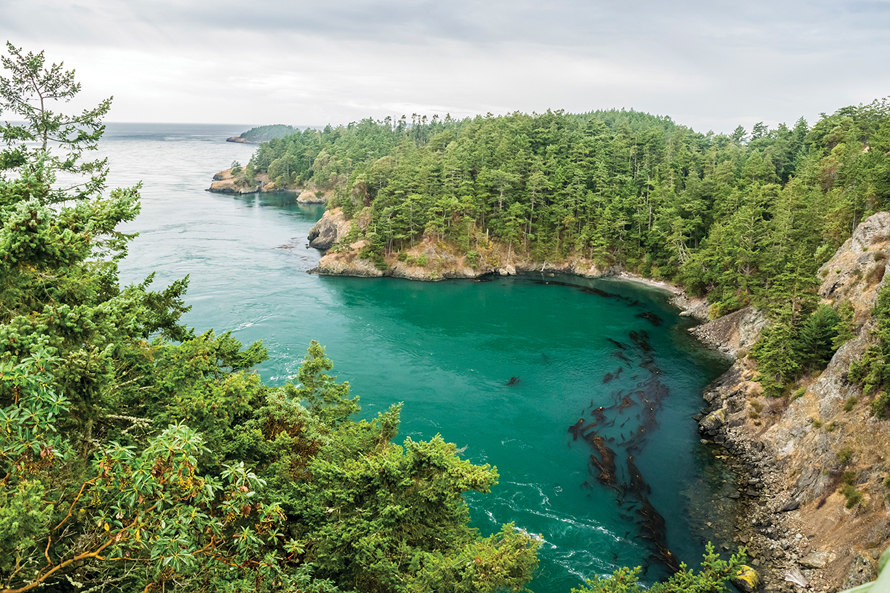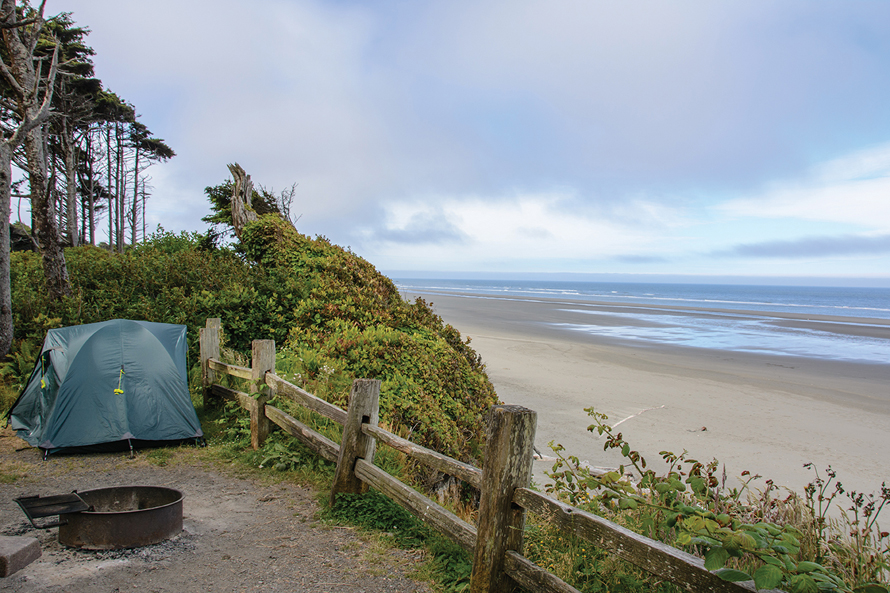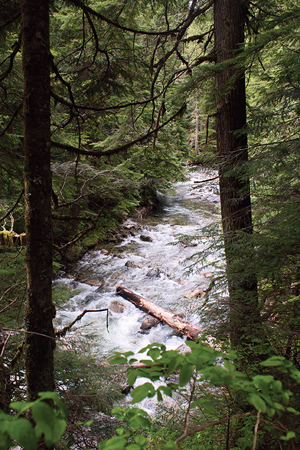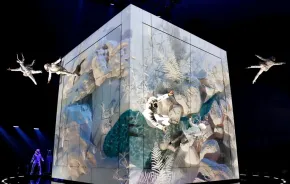
It’s winter, and camping is probably the last thing on your mind. That is, unless you’re a true camping planner pro, in which case you’ve written “Book Kalaloch campsite!” in red pen on your calendar for some time in January — exactly six months to the day before you want to pitch your family’s tent on that uber-scenic stretch of the Olympic coast. You may even have an alarm set for midnight so you’ll call dibs on the choicest, most spacious campsite in one of the Pacific Northwest’s most popular campgrounds.
If this sounds nutty, I have news for you. There are a lot of nutty people out there, and they get all the great campsites.
“Just a little effort now pays off when summer camping season comes around,” explains Elisa Taylor, a Seattle mom who reserves all her camping adventures, including a long weekend at Mount Rainier’s Ohanapecosh Campground with her kids every summer. “If your vacation time is limited and you’re not able to head out on a camping trip early in the week, it’s pretty much necessary to have a reservation.”
Advanced campground reservations are possible in a majority of campgrounds on public lands throughout the Pacific Northwest. State park campgrounds in both Washington and Oregon generally accept advanced reservations for some or all of their campsites. Some national forest campgrounds also accept reservations. Most national park campgrounds do not accept reservations, though there are a few, very popular exceptions.
Nearly all campground reservations may be easily made online, and in most cases, you may view a photo of each campsite before selecting the one you want. Campground reservations can almost always be canceled for a full or partial refund (though your reservation fee will not be returned, and you may be charged an additional service fee). However, to receive a refund, the reservation usually must be canceled within a specified number of days before the reservation date.
So, here’s how to make those campground reservations now and become a true pro at planning future camping trips.
How to reserve campsites at state park campgrounds
State park campgrounds are tailor-made for families. They feature amenities such as easy, well-maintained hiking trails, bathrooms with flush toilets and running water, and coin-operated showers. Most offer both tent sites and utility hookups for camping trailers and RVs. You won’t need a day-use pass to enter a state park in Oregon or Washington when you have campground reservations.
How to reserve campsites in Washington:
Washington has 70 state park campgrounds that accept reservations. To reserve online, go here. On that website, you’ll find a list or map of reservable campgrounds. You can then reserve the campsite you want by using a credit card (an $8 nonrefundable reservation fee is added to the total cost of your stay) or by calling 1-888-CAMPOUT (a $10 reservation fee is added).
Camping fees range from $12 for pretty basic campsites to $40 for sites with partial utility hookups. Standard tent sites are $25–$35.
Campsites can be reserved up to nine months in advance of your arrival date.

Top “must reserve” campground: Deception Pass State Park, perched atop a dramatic headland on the north end of Whidbey Island, is well loved for its scenery and hiking trails, so reservations in summer are a must.
How to reserve campsites in Oregon:
Oregon has 62 reservable state park and recreation site campgrounds. To reserve online, go here. Then, enter your arrival date in the search box to view a list or map of reservable campgrounds.
Reserve the campsite you want by using a credit card or by calling 1-800-452-5687. (An $8 nonrefundable reservation fee is added to the total cost of your stay when you reserve online or by phone.) Camping fees range from $12 to $21 for standard tent sites to about $30 for sites with partial utility hookups.
Campsites can be reserved up to nine months in advance of your arrival date.
Top “must-reserve” campground: Fort Stevens State Park, on the Oregon coast just south of Astoria, where miles of sandy beaches and a historic military artillery installation attract throngs of families.
How to reserve campsites at national park campgrounds
National park campgrounds are well-maintained and get you close to the major scenery and best hiking trails. Some offer family nature programming and ranger talks.
Planners, however, find these campgrounds less attractive because, currently, only a few national park campgrounds accept reservations. Until a few years ago, only Mount Rainier offered reservable campsites (at Ohanapecosh and Cougar Rock); now, both Olympic and North Cascades national parks have a few options as well.
How to reserve:
National park campground reservations can be made up to six months in advance of your arrival date at recreation.gov (or call 1-877-444-6777). From the home page, search for a national park, and campgrounds with reservable sites will be displayed. Camping fees are $16–$22 per night.
Note: Oregon’s Crater Lake National Park books reservations for Mazama Campground via a different system. Go here to reserve.

Top “must-reserve” campground: Kalaloch is one of the most scenic spots to pitch a tent on the Olympic coast, and is the only national park campground on the west side of the Olympics that accepts reservations. Book it if you want a guaranteed spot to pitch your tent on your next coastal rain forest vacation.
 How to reserve at national forest camp-grounds
How to reserve at national forest camp-grounds
National forest campgrounds are the most numerous of campgrounds available in Washington, and are the least likely to require reservations far in advance.
These campgrounds vary greatly in advanced reservation policies, the costs of campsites per night and the amenities offered — some are quite basic.
National forests with campgrounds that accept reservations include Mount Baker–Snoqualmie National Forest, Gifford Pinchot National Forest and some areas of the Okanogan-Wenatchee National Forest. Reservations can be made up to six months in advance.
How to reserve: Visit here and search for the national forest that interests you. The search will yield a list of the campgrounds in that forest that have reservable sites.
Top “must-reserve” campground: Denny Creek Campground is popular in the summer months because of its proximity to Seattle and the trail to a cool natural “waterslide” that bears its name, so advanced booking is a good idea.
Prep that gear before next summerCamping seems like a giant pain when you leave all this to the last minute. A little organizing and gear TLC in the off-season will make packing easier than ever.
|











